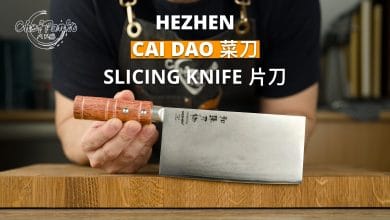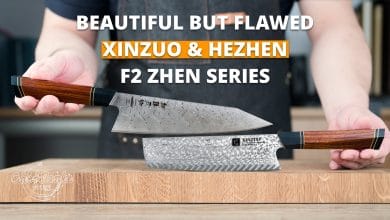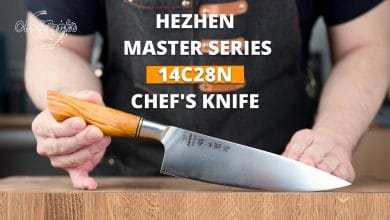The Choil of a kitchen knife can tell you a lot, but at the same time, it does not mean a lot without considering everything else. The Choil can tell you about the knife’s grind and how thick the knife is behind the edge. It tells you how the knife will perform, and it tells you if the geometry is good or if it can use some work. Looking at the knife choil gives you a lot of information that you can investigate further.
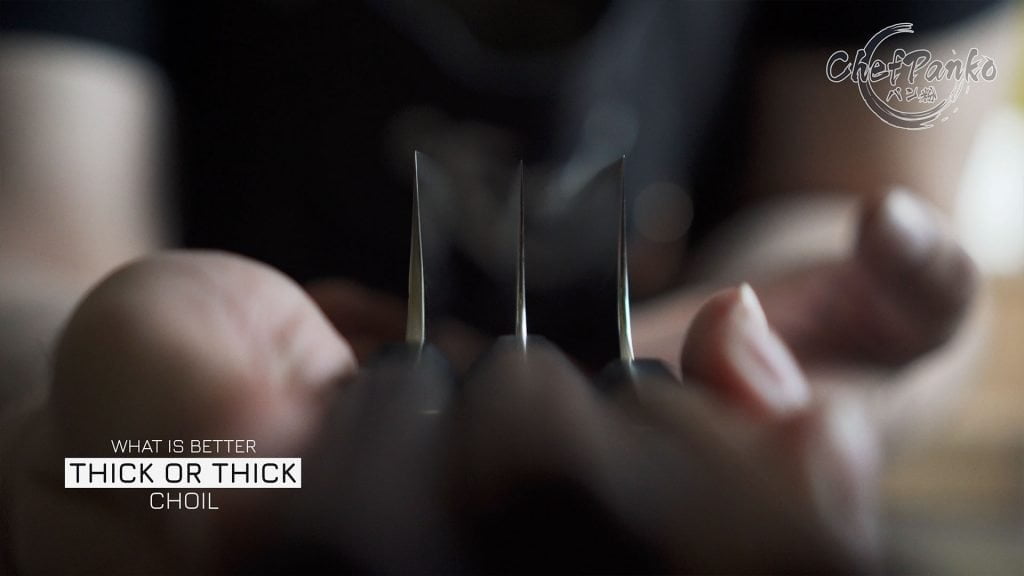
How to look at the kitchen knife, Choil?
The first thing we look at is the knife-edge and how it transitions into the bevel.

After that, we look at how thick or thin the knife is behind the cutting edge.
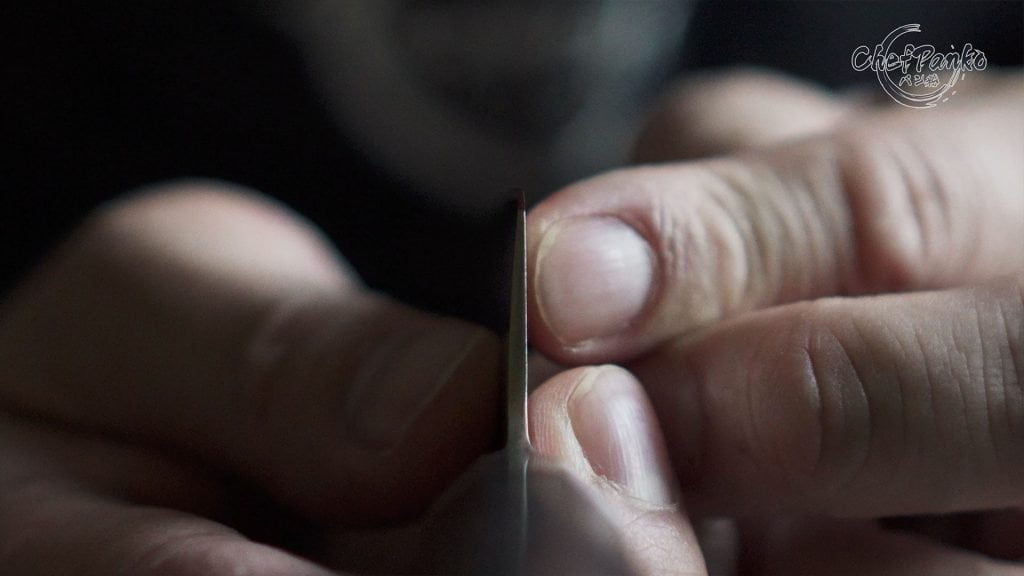
It is sometimes hard to see what kind of grind the knife has by just looking at the Choil. Therefore we rotate the knife and look at the Choil from a side point of view to see the grind.
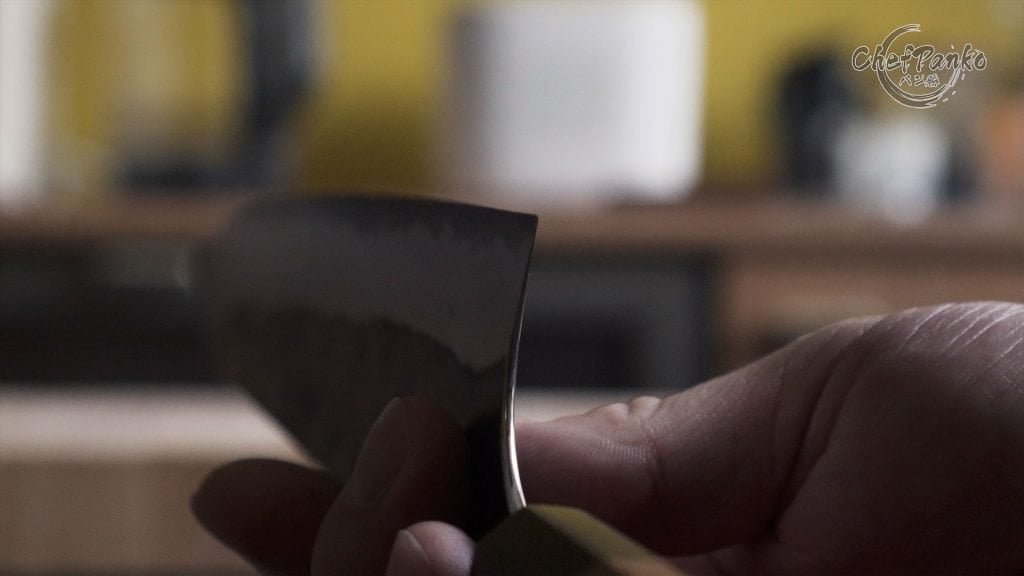
Different Choils
Now that you understand how we look at the Choil let’s explain it with some examples. In this example, you see that the left Choil is thinner and the right one is thicker. However, as I said before, it is sometimes hard to see what grind they use. If you look at the left knife, you see that this is a flat grind. The right knife is a Hollow grind. There is no abrupt visible cutting edge at the Choil on both knives, so we can say that both Choils are good.

Makoto Kurosaki vs Kotai Kitchen Choil
You can see that the Choil on the left has no abrupt visible cutting edge in this example. But on the right, you can see an abrupt finish. The right Choil is also thick behind the sharpened edge. It requires more investigation before we can judge if the knife will perform as we expected or not.

An abrupt finish and a thick grind behind the sharpened edge usually indicate a knife that can wedge or tear some food while cutting.

Further investigation
It requires more investigation before we can confirm our finding by looking at the Choil. You can do that by cutting food and also looking at the other aspects of a knife.


The knife style, spine taper, and profile taper play a significant role in determining if the knife needs some thinning behind the edge.



Does it need some thinning?
By looking at the knife profile, we can determine that it has a Gyuto profile. And therefore, I expect a distal spine taper.

However, the spine taper is not present, which is not a big deal as they can still have a nice profile taper.
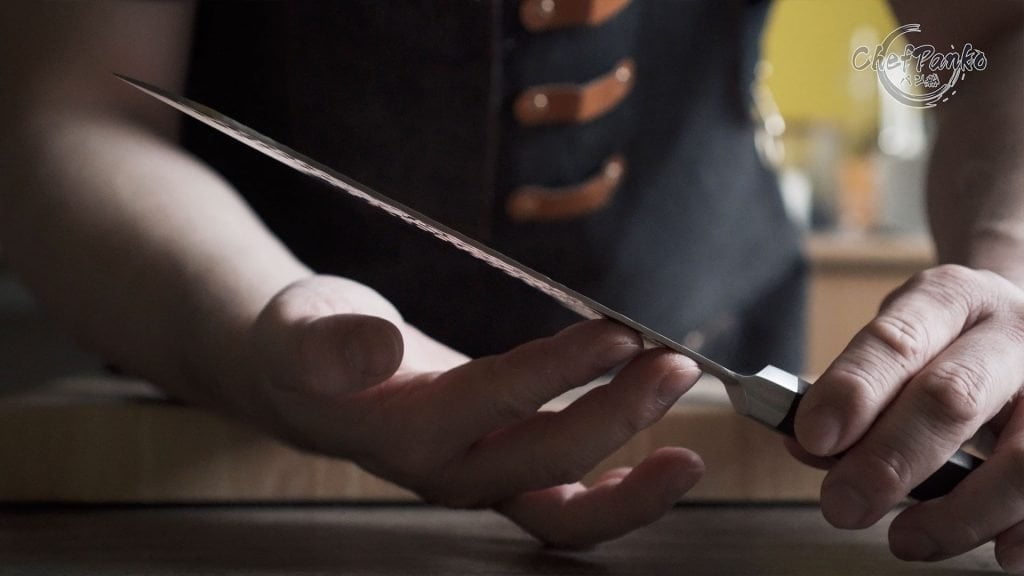
In this case, the profile taper is consistent throughout the blade length.

So the wedging effect is pretty much across the entire knife just before the slanted front. If we take the Makoto knife, we can see a spine taper, including a very lovely profile taper. It is getting thinner and thinner.


So, in this case, we can say that the Kotai Kitchen knife can use some thinning.
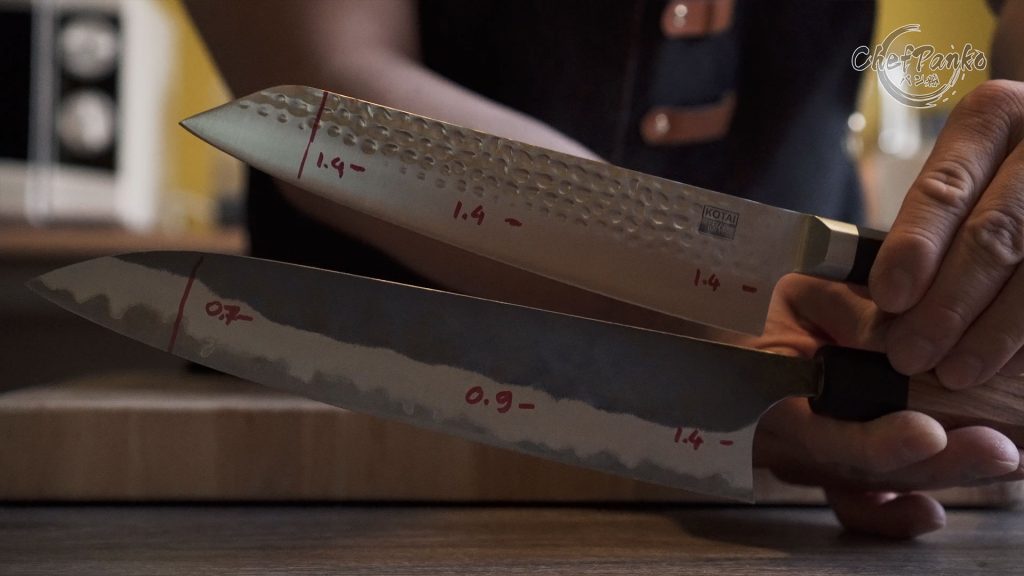
Knife style has a significant role in evaluating the Choil.
The knife style is a significant factor that we need to consider before we can judge a knife choil. In this example, you can see a knife that has an abrupt finish, and it is very thick behind the edge.

But I still consider this a good Choil because it is a Bone cleaver. Compared to this dual-purpose Cleaver, you can see an inconsistent Choil, which is not good.

And if we look at this Chinese Vegetable Cleaver, you can see a nice choil with a lovely profile taper.


Knives used in this video/article:
🛒 S H O P
Official Shi Ba Zi Zuo Amazon store
Amazon Version F208-1 (9 inches)
8inch version F208-2 (my Recommendation)
🛒S H O P:
🛒S H O P:
🛒S H O P:
NA & EU: AliExpress Official Dengjia Store:
NA: Dengjia Amazon Store
NA & EU:
🛒S H O P:
🛒S H O P:
NA: Kotai Kitchen
EU: Kotai Kitchen
🛒S H O P:
Retailers: Shibata’s official retailer’s list
Makoto Kurosaki
Yu Kurosaki
N O T E S:
All knives shown are for reference only.
▶ If you want to know what knife you should buy you can read the following article ''Choosing your knife''. ▶ On my youtube channel, I have reviewed a lot of different knives. You can watch the playlist by clicking here. ▶ Click here, if you want to search for other kitchen knives on: Amazon. ▶ , if you want to search for other Chinese knives on . ▶ Check out my gear on Kit: https://kit.co/ChefPanko ▶ Check out my recommendation on Amazon: https://www.amazon.com/shop/chefpanko Full Disclosure: If you purchase from these links I get a small commission that goes towards supporting the channel and website. As an Amazon Associate, I earn from qualifying purchases ▶ If you have any questions about Japanese knives made in China or about some of the brands feel free to ask it in the comment section below. Thank you for your support and feedback. ▶ Want to work with me? Please use the contact form by clicking here.

